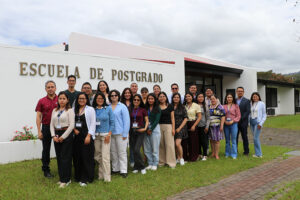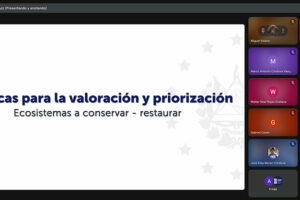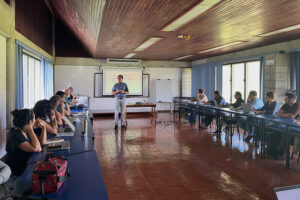Tropical agriculture is crucial for the planet and must receive greater support to transform its natural wealth into productivity
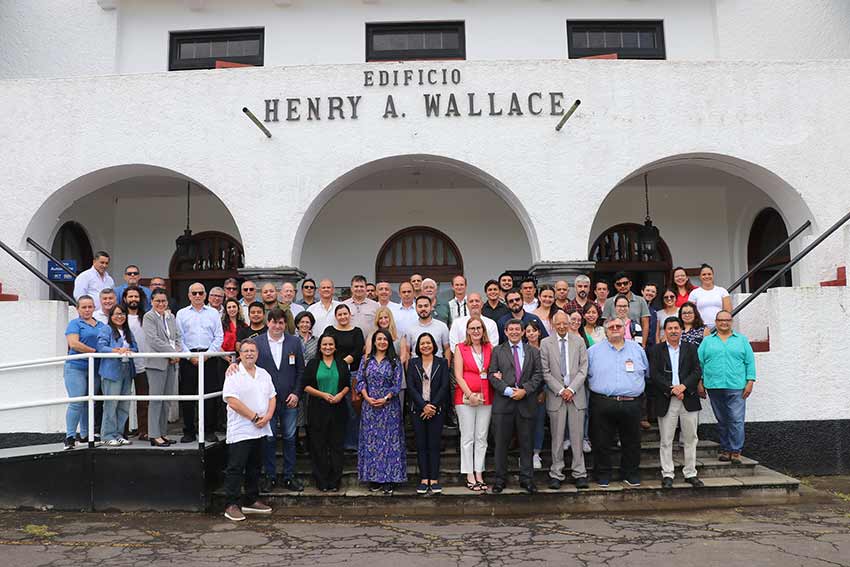
- International experts affirm during tropical agriculture conference organized by IICA and CATIE
Tropical agriculture in Latin America and the Caribbean is essential to global food security, and it is time for it to receive more support to transform its vast natural wealth into productivity. This was the central message at the opening of the International Conference on Tropical Agriculture, which brought together many of the world’s most prestigious experts in the field, in Costa Rica.
The three-day event of discussions and knowledge exchange (July 29 to 31) focused on ways to scale up sustainable and resilient agricultural production in tropical areas by building bridges between production, education, science, innovation, and finance.
The headquarters of the Inter-American Institute for Cooperation on Agriculture (IICA) hosted the opening of the conference, which then moved for the following two days to CATIE (Tropical Agricultural Research and Higher Education Center).
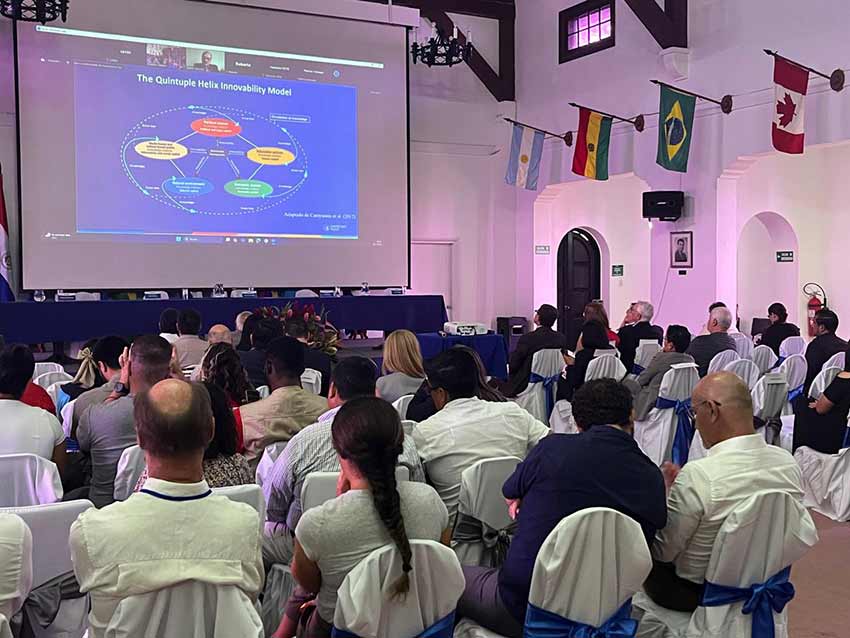
The conference was opened by Víctor Carvajal, Minister of Agriculture and Livestock of Costa Rica; Beatriz Paredes, former Mexican senator, a prominent figure in sustainable rural development and Goodwill Ambassador of IICA; Luis Pocasangre, Director General of CATIE; and Manuel Otero, Director General of IICA.
In addition to renowned scientific experts in tropical agriculture, the event included representatives from the Alliance of Bioversity International and CIAT, the World Bank, FONTAGRO, the International Food Policy Research Institute (IFPRI), and other international organizations that play key roles in financing and developing technologies for food security, as well as officials from ministries of agriculture and private sector leaders.
Minister Carvajal emphasized that the changes occurring in global trade dynamics are narrowing profit margins and increasing the need for investment in research and new technologies.
“However,” he warned, “resources are not always abundant in countries or businesses. That is why sharing knowledge and experiences is essential; every time we do, both producers and consumers benefit.”
Carvajal praised the effort to organize this type of gathering and pointed to climate variability as one of the most pressing challenges faced by countries and farmers in tropical regions.
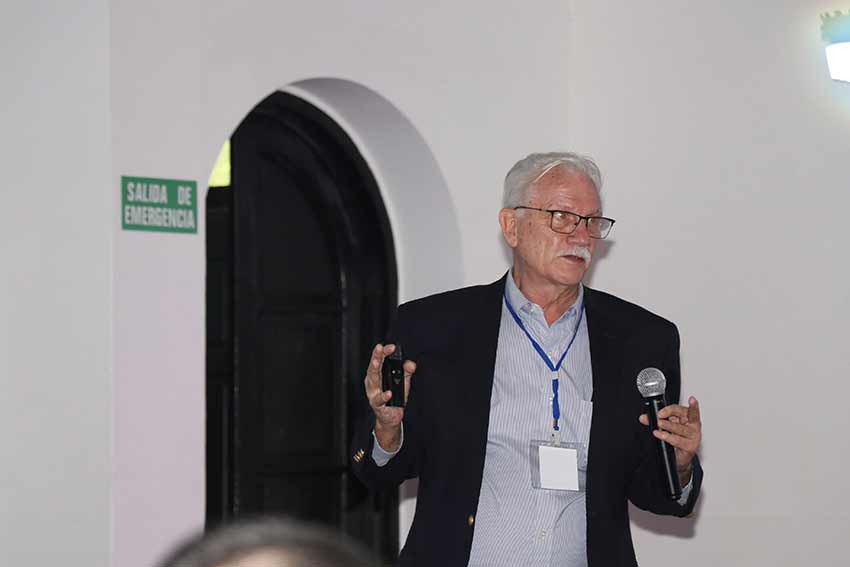
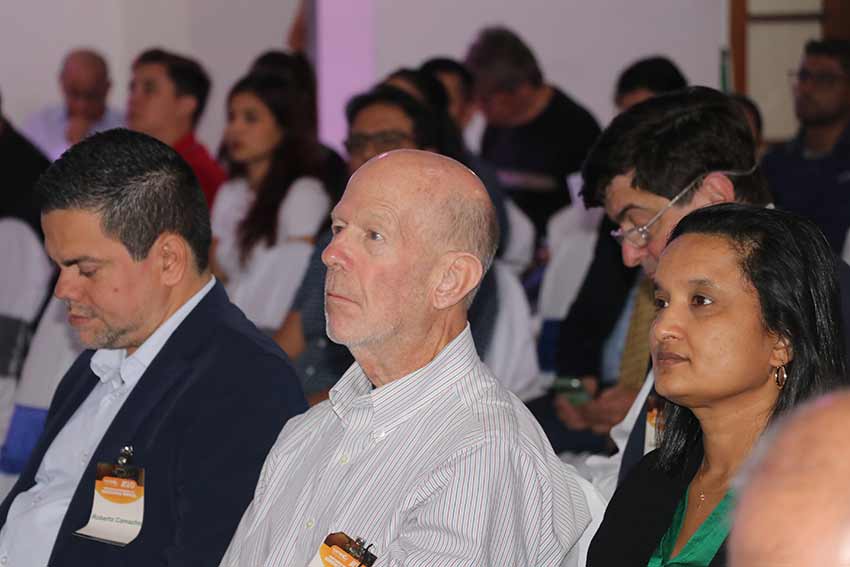
Dr. Pocasangre gave an overview of the historic relationship between CATIE and IICA and the academic center’s ongoing training role in agriculture, natural resource management, conservation, and sustainable use, which has attracted thousands of professionals.
“With IICA,” he said, “we have built a friendship and, more importantly, a joint commitment to tropical agriculture and the countries of the region.” He also highlighted the participation of internationally renowned experts such as Professor Rattan Lal, considered the world’s leading soil scientist, and Rodomiro Ortiz, professor at the Swedish University of Agricultural Sciences. He also acknowledged the professional work of Muhammad Ibrahim, former Director General of CATIE and recently Director of Technical Cooperation at IICA.
The day included a tribute to Dr. Manuel Otero, to whom CATIE’s Inter-American Chair on Tropical Agriculture is dedicated, in recognition of his leadership in regional integration, technical cooperation, and educational transformation.
A pillar of global development
Former senator Beatriz Paredes, IICA’s Goodwill Ambassador for Sustainable Development and Social Equity, stated that tropical agriculture, far from being a peripheral issue, is central to global development.
“However,” she acknowledged, “our continent’s tropical regions face structural challenges. One of them is inequality: there are areas with advanced technologies, and others where production occurs under nearly archaic conditions. Modernization not only helps generate wealth, it also stabilizes politics, strengthens national economies, and guarantees fair participation for local populations. Unfortunately, tropical agriculture has been underestimated.”
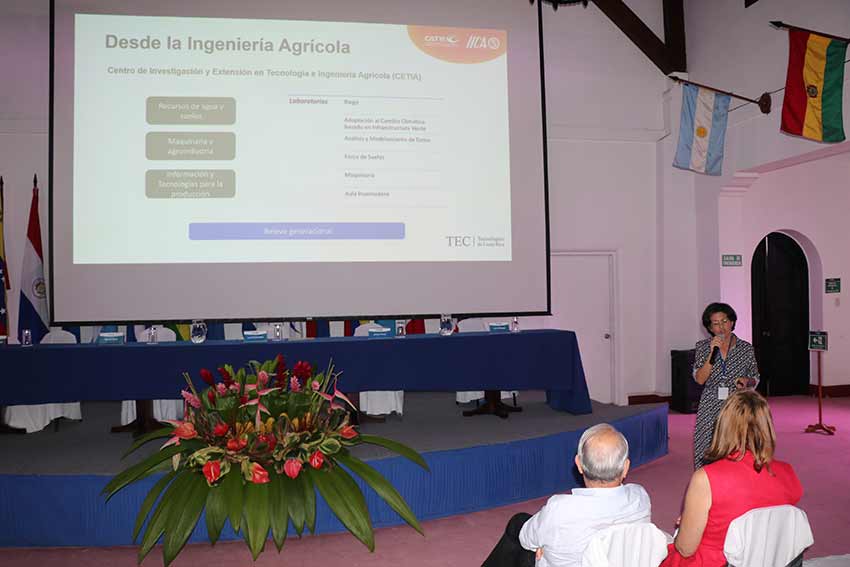
Paredes, who also served as Mexico’s ambassador to Brazil, stressed that family farmers and Indigenous communities, who work and own vast tracts of tropical land, must have access to credit and public policies that enable them to thrive.
“We must rethink tropical development with the understanding that we need to include the real protagonists—those who have been marginalized from the land,” she stated.
The former senator highlighted the concrete opportunities to transform tropical agriculture and drew attention to several successful models developed by CATIE, such as agroforestry and silvopastoral systems, which integrate trees, crops, and livestock in ways that protect soils, conserve water, and diversify rural incomes.
“Now more than ever, this should be the hour of the tropics in Latin America. It must become a priority in national budgets, relevant financing, and innovative policies—both national and international. Let us be bold and visionary, like the founders of IICA, the pioneers of CATIE, and the original Mayan and Olmec civilizations of the deep tropics.”
For his part, Dr. Otero emphasized the importance of continuing to unite efforts among all actors in agriculture as the only path to increased productivity and improved living conditions for rural communities.
“Tropical agriculture,” he added, “is undergoing a transformation so that this part of the world becomes a key player in global food and nutrition security, as well as energy security. We must turn our potential into real-world results.”
Through this conference, CATIE and IICA reaffirmed their role in creating platforms that connect science, education, and public policy for strengthening tropical agriculture, environmental sustainability, and food security.
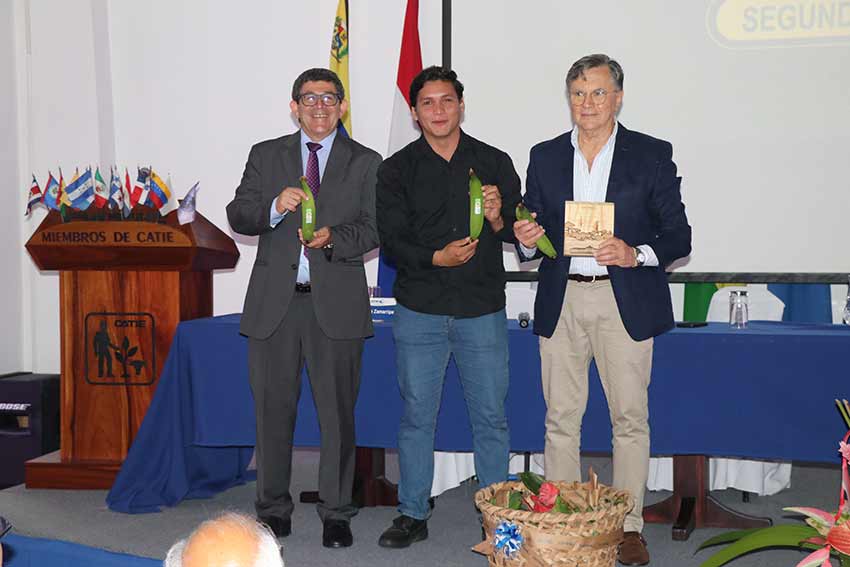
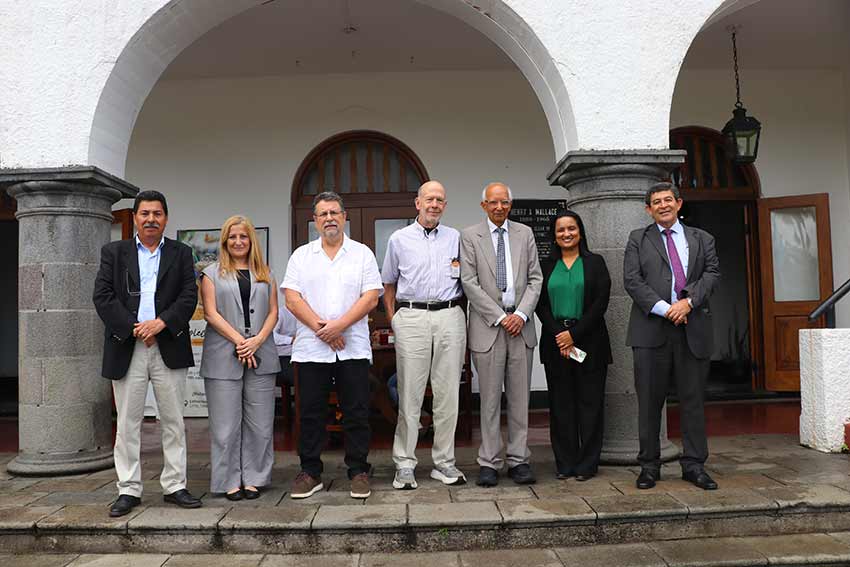
Written by / For more information:
Institutional Communications Management
IICA
comunicacion.institucional@iica.int
Communications and Marketing Office
CATIE
comunica@catie.ac.cr

